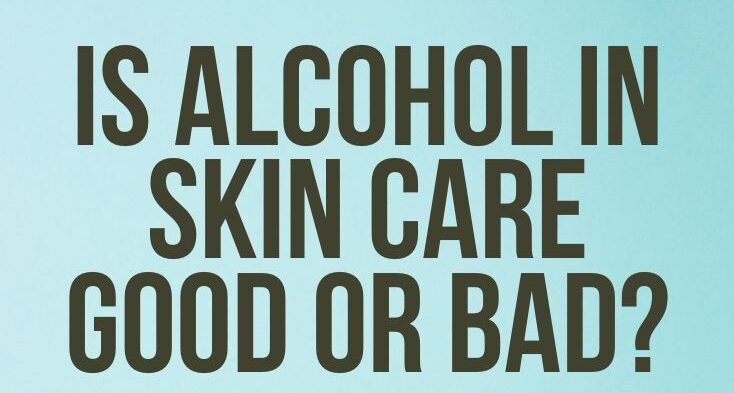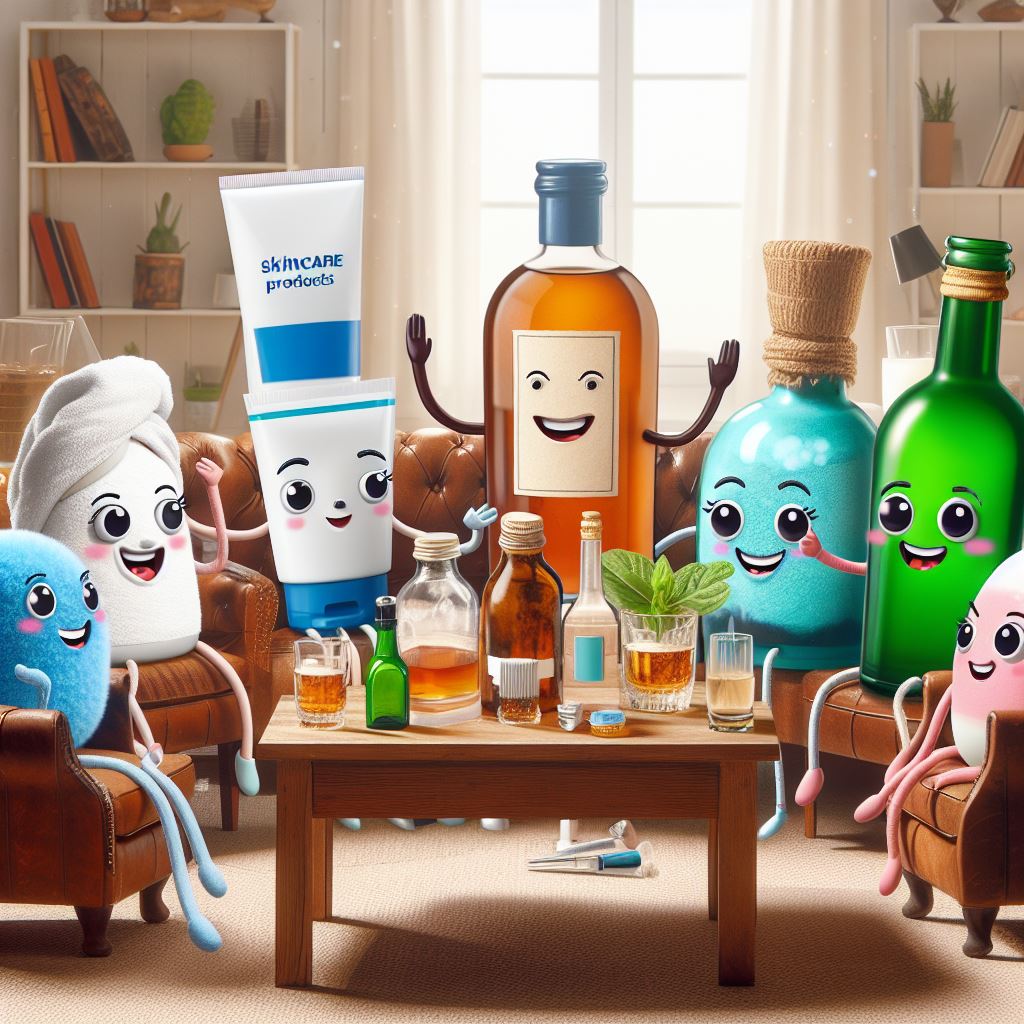The presence of alcohol in skincare products can be both a friend and a potential foe, depending on the type of alcohol and individual skin needs. Here are considerations regarding alcohol in skincare:

Types of Alcohols:
Fatty Alcohols (Friend):
-
- Examples: Cetyl alcohol, stearyl alcohol.
- Role: Fatty alcohols are typically derived from natural sources and are moisturizing and emollient. They help to soften and smooth the skin.
- Benefits: These alcohols can be beneficial for dry or sensitive skin, providing a soothing and hydrating effect.
Denatured Alcohol or SD Alcohol (Foe):
-
- Examples: Ethanol, isopropyl alcohol.
- Role: Denatured alcohols are often used for their astringent properties and as a solvent to help other ingredients penetrate the skin.
- Concerns: They can be drying and irritating, leading to moisture loss and potential disruption of the skin barrier.
Considerations:
Dryness and Irritation:
-
- Foe Aspect: Skincare products containing high concentrations of denatured alcohol may lead to dryness and irritation, especially for individuals with sensitive or dry skin.
- Friend Aspect: Fatty alcohols can provide moisture and are less likely to cause dryness.
Acne-Prone Skin:
-
- Foe Aspect: Denatured alcohol can be problematic for acne-prone skin, potentially exacerbating inflammation and triggering breakouts.
- Friend Aspect: Some formulations with fatty alcohols may be suitable for individuals with acne-prone skin.
Penetration of Ingredients:
-
- Foe Aspect: Denatured alcohol is used to enhance the penetration of other ingredients, but it can compromise the skin barrier in the process.
- Friend Aspect: Fatty alcohols can help deliver beneficial ingredients while maintaining skin hydration.
Sensitive Skin:
-
- Foe Aspect: Denatured alcohol is a common irritant for sensitive skin and can cause redness and discomfort.
- Friend Aspect: Skincare products with fatty alcohols may be gentler on sensitive skin.
Personal Sensitivity:
-
- Foe Aspect: Individual reactions to alcohol in skincare can vary. Some people may tolerate denatured alcohol well, while others may experience adverse effects.
- Friend Aspect: Knowing your skin’s sensitivity and choosing products accordingly is crucial.

Tips for Choosing Alcohol-Containing Skincare:
Read Ingredient Lists:
-
- Check the ingredient list to identify the type and concentration of alcohol in the product.
Consider Formulation:
-
- Alcohol in lower concentrations within a well-formulated product may be less likely to cause irritation.
Personal Sensitivity:
-
- Be aware of your skin’s sensitivity and monitor how it reacts to products with alcohol.
Consult Dermatologist:
-
- If you have specific skin concerns or conditions, consult with a dermatologist to determine the most suitable products for your skin type.
Summary:
In summary, not all alcohols in skincare are harmful. Fatty alcohols can offer benefits, especially for certain skin types. However, products with high concentrations of denatured alcohol may lead to dryness and irritation, making it important for individuals to choose skincare formulations that align with their skin’s specific needs.
Discover the Power of Organic, Clean, and Natural Living
At organic-look we’re passionate about holistic well-being and helping you live your best life naturally. Explore our articles on organic, clean, and natural living, and take your journey to the next level with our exclusive well-being products. From T-shirts and mugs to drawstring bags, stickers, and more—each item is designed to inspire and support your healthy lifestyle.
Enhance your natural glow—shop the Clean Beauty Collection and bring holistic wellness into your daily life.

